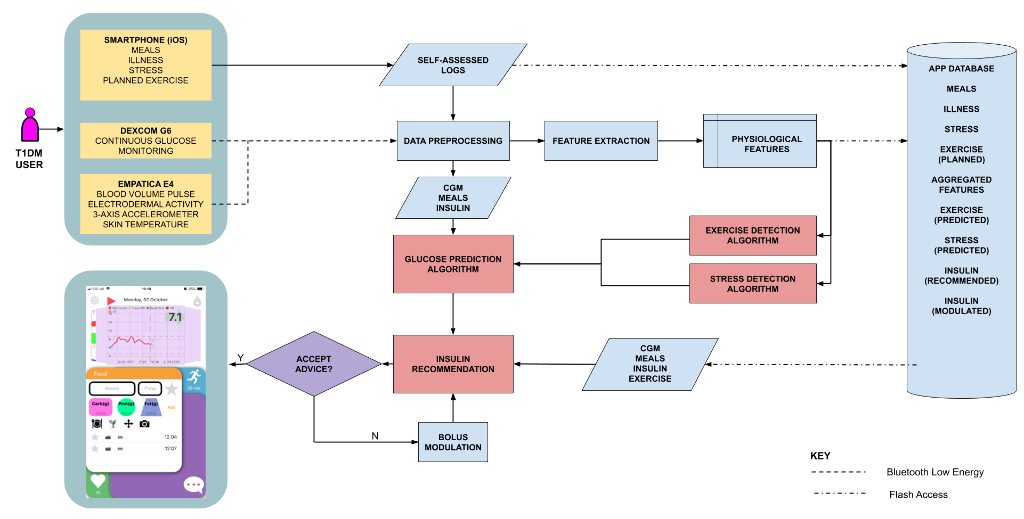ARISES: AN ADVANCED CLINICAL DECISION SUPPORT PLATFORM FOR THE MANAGEMENT OF TYPE 1 DIABETES
- John Daniels, United Kingdom
- John Daniels, United Kingdom
- Taiyu Zhu, United Kingdom
- Kezhi Li, United Kingdom
- Chukwuma Uduku, United Kingdom
- Pau Herrero, United Kingdom
- Nick Oliver, United Kingdom
- Pantelis Georgiou, United Kingdom
Abstract
Background and Aims
ARISES (Adaptive, Real-time, Intelligent System to Enhance Self-care of chronic disease) is a mobile platform facilitating a decision support system for people with Type 1 diabetes (T1D). This project aims to improve the efficacy of current care and reduce the burden of managing diabetes in daily living. We incorporate wearable biosensors and leverage on-device machine learning techniques towards improving glucose control.
Methods

This work details the system architecture for ARISES. ARISES comprises inputs from a Dexcom G6 for CGM, and Empatica E4 for physiological signals. These data are wirelessly transmitted to the smartphone. These data are then input to machine learning models which provide insights on the future glucose trajectory by means of a dilated recurrent neural network algorithm, and detect external contributing factors – exercise and stress. The second component is an insulin recommendation algorithm based on deep reinforcement learning that, using insights and historical data, provides bolus advice.
Results
We developed the platform on Apple iOS and implemented it on an iPhone. The built-in algorithm has been in silico validated and evaluated with retrospective clinical data. The performance of the platform will be evaluated in a randomised cross-over clinical study with 12 participants over 8 weeks.
Conclusions
The ARISES platform represents a step forward in decision support systems for T1D management due to the wealth of collected physiological data and the use of state-of-the-art machine learning algorithms.